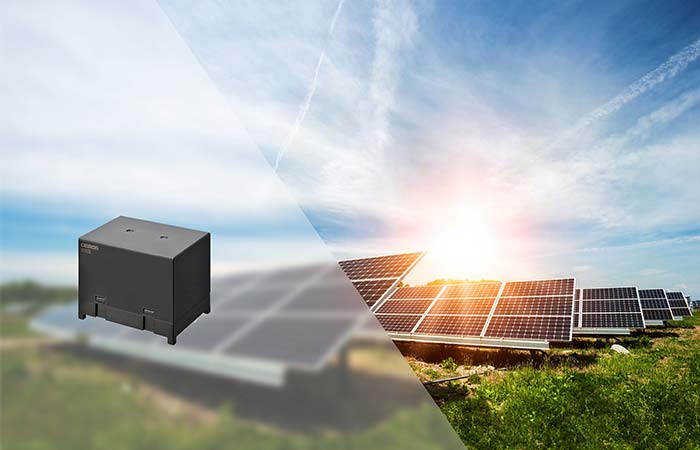 Omron Electronic Components Europe has launched the G7EB-E2 high power PCB relay. The relay is a new, higher capacity variant of the G7EB series, featuring enhanced current carrying and breaking capacity, providing a low footprint and cost-effective yet highly reliable alternative to contactors.
Omron Electronic Components Europe has launched the G7EB-E2 high power PCB relay. The relay is a new, higher capacity variant of the G7EB series, featuring enhanced current carrying and breaking capacity, providing a low footprint and cost-effective yet highly reliable alternative to contactors.
Rated for 150A of continuous carry current and switching current, the G7EB-E2 is suitable for up to 100 kW at 3-phase 400 VAC, 200 kW at 3-phase 800 VAC, and 7 kW at 48 VDC. Suitable applications include photovoltaic (PV) inverters, electric vehicle (EV) chargers and uninterruptible power supplies (UPS). Crucially, the relay is the exact same dimensions and weight as its predecessor the G7EB-E, providing increased capacity within the same footprint. It has a wide contact gap of 3.6 mm, with an extremely low contact resistance of 5m ohm.
As well as carrying, the G7EB-E2 also breaks at 150A for up to 100 operations at 480 VAC, and 30 operations at 800 VAC. The device is therefore ideal for providing safe and reliable system operations with an emergency stop function, and eliminates the need for other breaking devices, in turn facilitating smaller and lighter product designs with higher power capacity. The relay is available in two coil voltage variations of 12 VDC and 24 VDC.
Compared with similarly rated contactors, the G7EB-E2 is smaller and lighter, providing the potential to free up space within PCB designs by eliminating the need for additional power cables. Simplified PCB designs can also help to streamline and accelerate product manufacturing processes, while its lower cost compared to equivalent contactors can reduce component and unit costs.
In PV inverter applications, the G7EB-E2 can potentially be used to connect and disconnect the main circuit to and from the utility grid. Its contact gap of 3.6 mm is compliant with the requirements of IEC 62109. For industrial UPS, its 50 to 100 kVA outputs can be used to open or close input and output of AC main circuits, reducing the likelihood of failures while improving safety and resilience between grid and load. Alternatively, it can be applied to 48 VDC battery and power supply systems to connect and disconnect safely from the DC supply.


